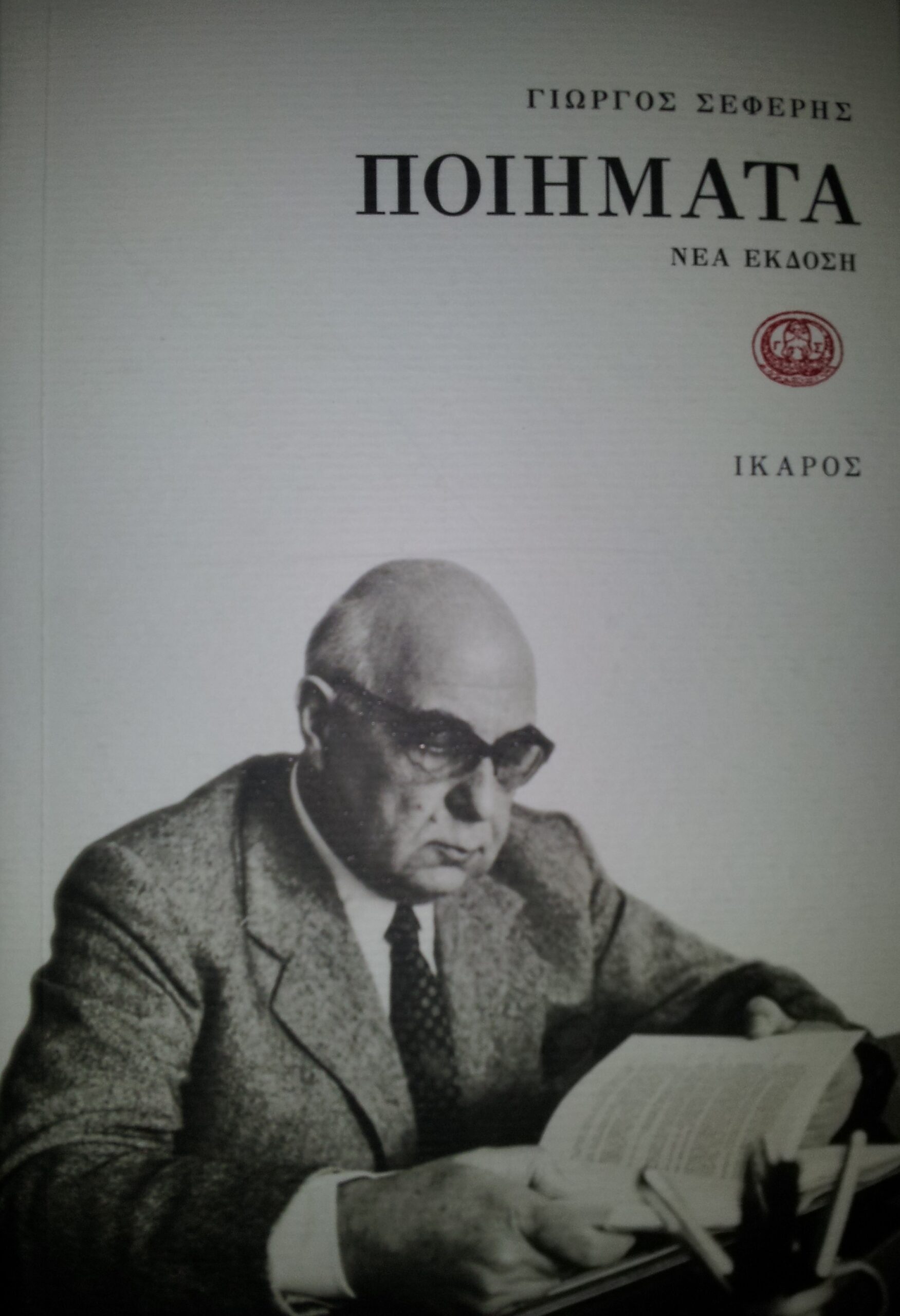ΣΕΦΕΡΗΣ: ΠΟΙΗΜΑΤΑ / SEFERIS: POEMS
 “>
“>
Author:
GIORGOS SEFERIS
Country:
Greece (GR)
Book Theme:
The books of the Nobel prizes
Publisher:
IKAROS
Publishing Year:
2014
Giorgos Seferis (1900-1971) was a distinguished Greek poet and diplomat, notable for being the first Greek to win the Nobel Prize in Literature in 1963. Born Georgios Seferiades in Smyrna, he moved to Athens in 1914. He studied law in Paris and later joined the Greek diplomatic service, where he served in various capacities, including as Ambassador to the UK, a post which he held from 1957 to 1962.
Seferis’ poetry, characterized by its modernist style and deep connection to Greek history and mythology, includes works like “Strophe” (1931) and “Gymnopaedia” (1936). His Nobel Prize recognized his lyrical and evocative poetry, which captured the essence of the Greek spirit and its struggles. Seferis remains a central figure in modern Greek literature.
National Award for Children’s and Young People’s
Abstract
The new edition of Seferic poems, edited by Dimitris Daskalopoulos, gathers, for the first time, in “Poems” the “Tetradio Gymnasmata, 2” and coincides with the fiftieth anniversary of the poet’s Nobel Prize. Seferis’ readers, older as well as younger, now have the opportunity to communicate with his main poetic output and to consider the various ramifications of its sometimes suggestive and sometimes unexpectedly playful character. (From the presentation on the back cover of the book)
This anthology captures the essence of Seferis’ lyrical mastery and his ability to blend the personal with the universal. His poems often reflect his own experiences as a diplomat and an exile, grappling with themes of displacement and longing for home. Seferis’ works are imbued with a deep sense of Hellenic culture, drawing on classical references and the natural landscape of Greece to convey his meditations on time, memory, and existential quest.
Key poems in this collection include “Strophe” (1931), which marks his poetic debut and sets the tone for his future works, and “Mythistorema” (1935), a landmark sequence that intertwines personal reflection with historical narrative. His poetry often invokes the figure of Odysseus, symbolizing the perennial search for belonging and understanding.
Seferis’ style is characterized by its clarity, precision, and musicality, achieving a delicate balance between traditional forms and modernist sensibilities. His use of imagery and symbolism is both vivid and subtle, inviting readers to delve into layers of meaning and emotion.
This volume not only serves as a testament to Seferis’ literary genius but also as an entry point for readers to engage with the broader context of modern Greek literature. His influence extends beyond the realm of poetry, resonating with themes of cultural continuity and change, and the enduring power of the written word to capture the human spirit.



